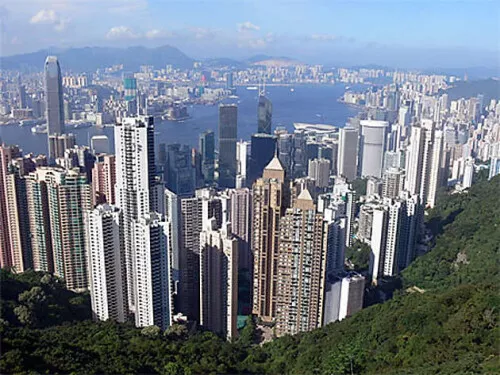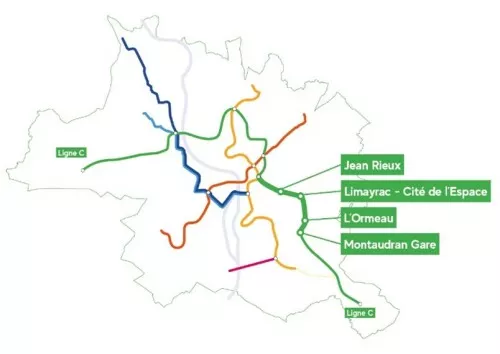Press release
The IRIS consortium, led by Bouygues Travaux Publics, to design and build line 15 East of the Grand Paris Express between Bobigny and Saint-Ouen.
07-05-2024
Société des grands projets has awarded the IRIS1 consortium, led by Bouygues Travaux Publics, the contract "15 Est-2" to design and build the line 15 East of the Grand Paris Express, which runs from Bobigny to Saint-Ouen, for a total of 1.087 billion euros.
Running exclusively underground, this section of the metro will be integrated into a densely populated urban environment and will extend over the municipalities of Saint-Ouen, Saint-Denis, Aubervilliers, Drancy and Bobigny. Ultimately, Line 15 East will significantly improve mobility for 675,000 inhabitants of the Paris region, and greatly improve the attractiveness of the area.
The project awarded to the IRIS consortium includes the construction of four new stations (Stade de France, Mairie d’Aubervilliers, Fort d’Aubervilliers and Drancy-Bobigny) along with upgrading work at the Saint-Denis-Pleyel station. The contract also includes the excavation of a tunnel of approximately 5.5 km, the upgrading of 2.5 km of existing tunnel, the construction of four new service structures and the upgrading of three existing service structures. In addition, the contract also includes the construction of real estate projects (housing and offices) above the Mairie d’Aubervilliers and Drancy-Bobigny stations.
The IRIS consortium has been formed to carry out this project by a group of companies with benchmark experience and expertise in their sectors, in order to meet all the technical, architectural and environmental challenges involved.
A project that will respect the environment and blend into its surroundings
The consortium, which includes four firms of architects (Atelier d’Architecture Brenac & Gonzalez & Associés, Atelier Novembre, Atelier Schall Architectes Associés and Enia Architectes), has paid particular attention to the design of the projects, with a strong emphasis on frugality in the choice of materials and architectural design. This responsible approach will help to ensure that the projects blend harmoniously into their environment. Sustainability and scalability are at the heart of the design, with property developments offering the flexibility to adapt to changing uses.
The consortium will be committed to harnessing all its resources in terms of innovation to meet environmental challenges, none more so than reducing greenhouse gas emissions. It also aims to participate in the creation of the HQE Sustainable Infrastructure standard. With this in mind, it will prioritise the reuse of materials, the use of low-carbon fibre-reinforced concrete for the tunnel voussoirs, and the use of electric vehicles and site machinery to help reduce CO2 emissions. Meanwhile, a waste reduction initiative will be put in place on the construction sites.
Throughout the project, the consortium has undertaken to maintain a close dialogue with all stakeholders in the areas concerned, in particular local authorities, users and non-profit organisations. This will give rise to numerous partnerships, including the provision of an anticipated 380,000 hours of work experience. The consortium also plans to contract at least 20% of its work to SMEs.
This section of the metro is scheduled to come into service in 2031.
PRESS CONTACT
Presse@ir15.fr / +33 (0)1 3060 5281
Contact presse
Lire aussi...

Press release
Travaux publics
Bouygues Construction to build the Potomac River Tunnel, a major environmental project for Washington D.C.
21-11-2023
En savoir plus
Press release
Travaux publics
Bouygues Construction wins contract to extend a metro line in Hong Kong.
26-09-2023
En savoir plus
Press release
Travaux publics
The HORIZON Consortium chosen to build batch 4 of the future Toulouse metro line C
23-03-2023
En savoir plus

